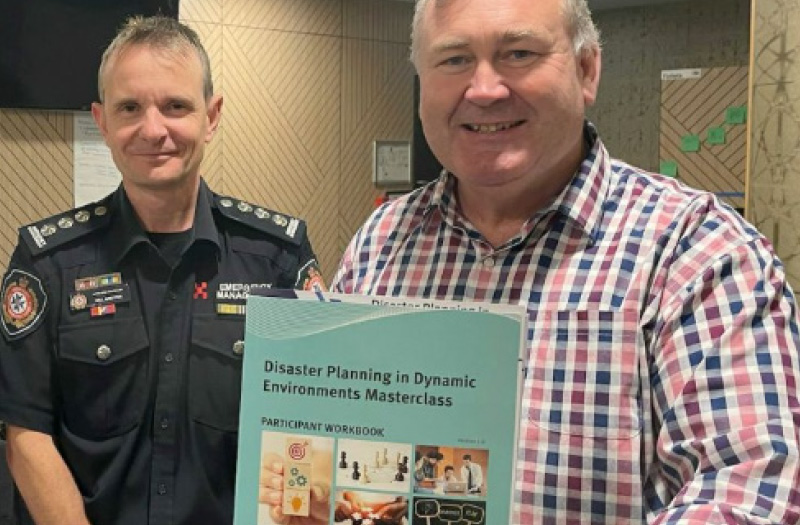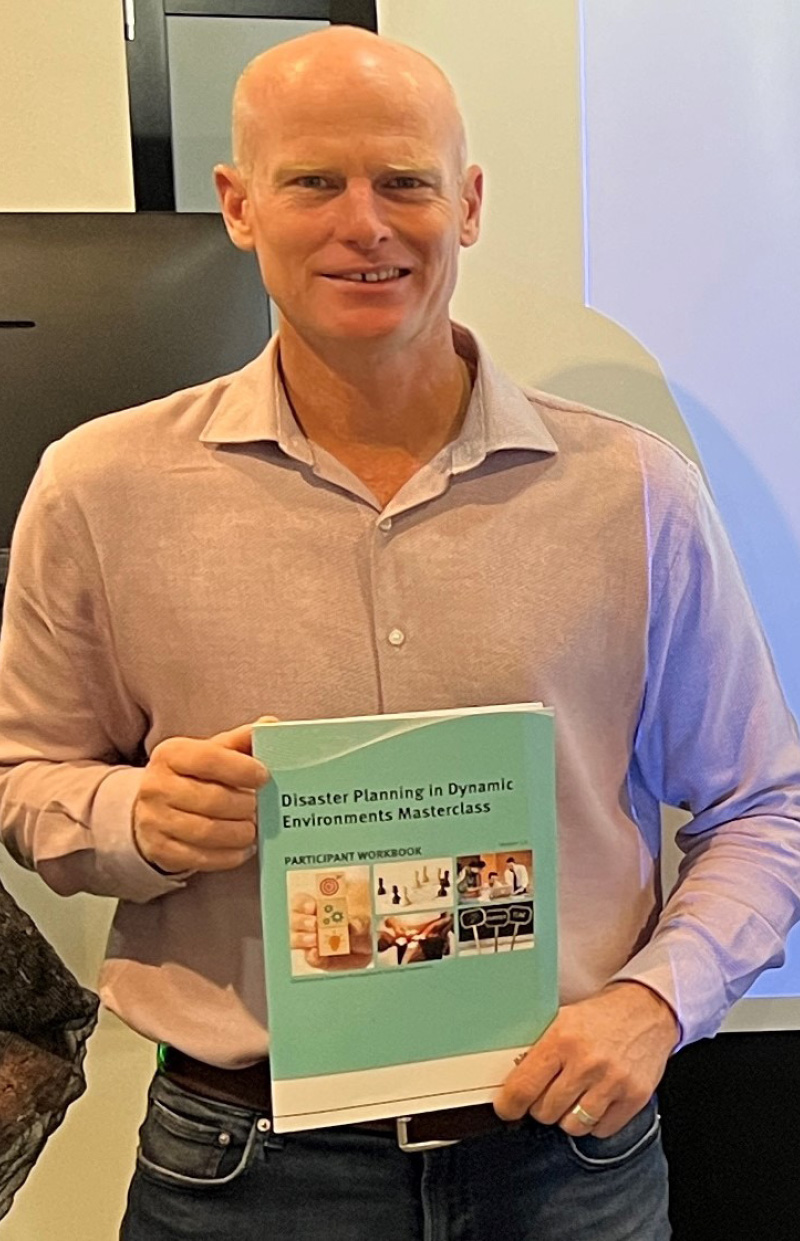Queensland is preparing disaster managers to lead and manage in increasingly volatile, uncertain, complex and ambiguous environments.
Queensland introduced the Operational Leadership and Crisis Management Masterclass in 2018 as a component of the capability development offered through the Queensland Disaster Management Training Framework.1 Queensland’s disaster management education and training programs are designed to provide disaster managers with appropriate capability to effectively perform their roles.
The requirement for capability enhancement in operational leadership and crisis management was identified through research and consultation with disaster management stakeholders. The masterclass sessions were designed to extend learning and build on the core level of training provided through other disaster management courses.
With the increasing frequency, severity and complexity of extreme events, Queensland aims to be adaptive and agile in its education offerings so that disaster managers have contemporary programs that support their capability to lead and to manage.
Through a contract with the Australian Institute for Disaster Resilience, a new masterclass, Disaster Planning in Dynamic Environments, was developed and launched in 2022. The masterclass focuses on dynamic planning in an operational disaster management context. It explores the factors that inhibit and enhance good planning, with strategies to monitor and manage events to achieve better outcomes.
The Disaster Planning in Dynamic Environments masterclass was delivered to 197 practitioners in 10 Queensland locations during May and June 2022. Participants were from local government, emergency services, state government and non-government organisations. Reflective of their significant role in the Queensland disaster management arrangements, 41% of participants were from local government including 14 elected officials – mayors and deputy mayors. This included Jack Dempsey, Mayor of Bundaberg Regional Council. Mayor Dempsey is the Chair of the Bundaberg Local Disaster Management Group and had high praise for the masterclass, saying, ‘It’s important to consider emerging challenges and their implications for planning in dynamic environments’.
The Gympie masterclass was attended by Mayor Glen Hartwig in his capacity as Chair of the Gympie Local Disaster Management Group. Mayor Hartwig is an experienced disaster manager having led and supported his region through 3 major flooding events in the 5 months prior to the masterclass. With the flood waters from the most recent event receding only days before the masterclass session was delivered in Gympie, he shared experiences from these events that enriched the learnings for all participants.
The high level of participation of local officials demonstrates the importance they place on their disaster management role and the value and beneficial outcomes the masterclass sessions offers.

Mayor of Bundaberg Regional Council, Jack Dempsey (right) and Emergency Management Coordinator, William Gretton from Queensland Fire and Emergency Services (left), participated in the masterclass at Bundaberg.
Image: Queensland Fire and Emergency Services

Mayor of Gympie Regional Council, Glen Hartwig, completed the masterclass.
Image: Queensland Fire and Emergency Services
The Disaster Planning in Dynamic Environments masterclass supplements existing topics in the series: Meteorology for Disaster Managers; High Consequence Decision Making; Leadership in Disaster, Crisis and Adversity and Coordinating Teams Operating in Disaster. There are plans for future topics on recovery leadership and building adaptive capacity and community resilience.
The current and future masterclass topics were identified through evidence-based research and consultation with stakeholders to understand capability requirements. Contemporary research into teaching emergency and disaster management in Australia2 highlighted the skill areas of leadership, communication and collaboration as fundamental components of a training program for disaster management practitioners.
To enhance the learning experience for managers and to embed these skill areas, the masterclass sessions are designed as full-day, face-to-face sessions with a blend of academic theory and the immediate application of learnings through immersive, interactive team-based scenarios and activities. The benefits of experiential learning in disaster management education are well established and it combined with the opportunity to enhance relationships and practice cross-agency coordination and collaboration has proven to be highly successful.
Queensland aims to keep pace with the changing capability requirements for disaster managers through the evolution of education and training programs. The masterclass series is a critical component of the strategy.


